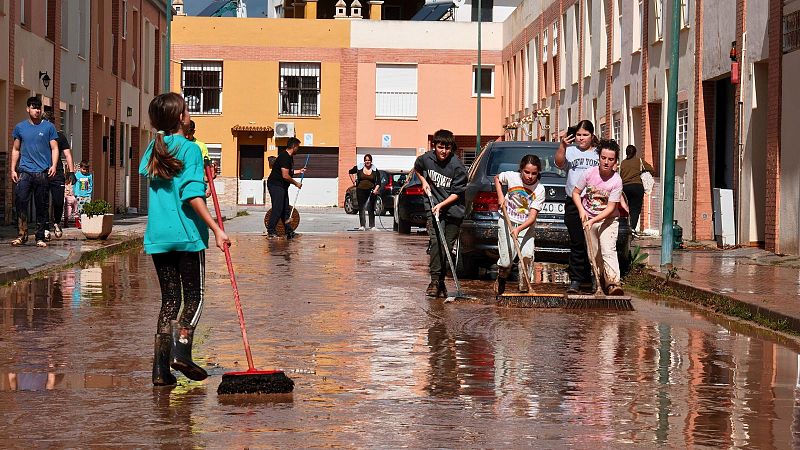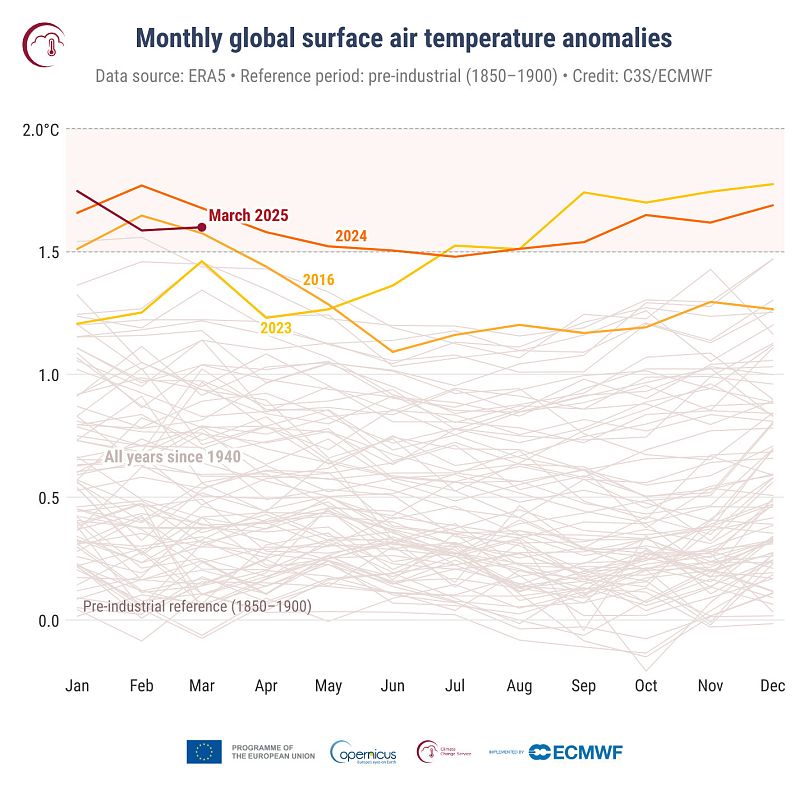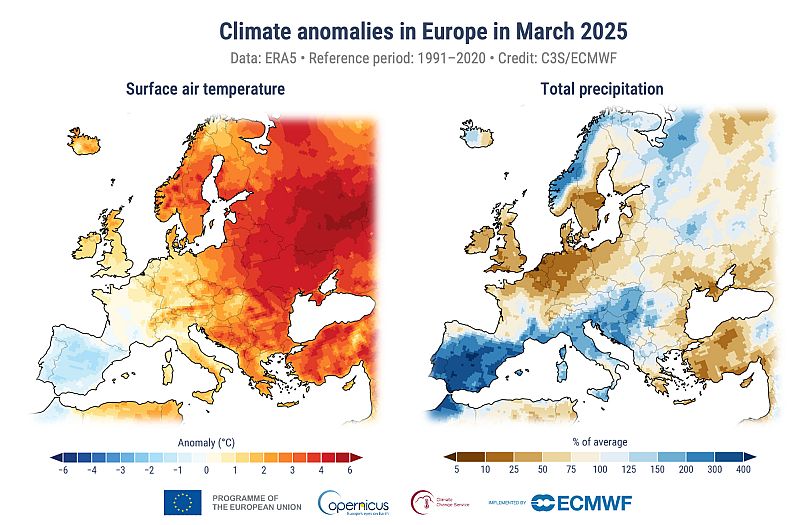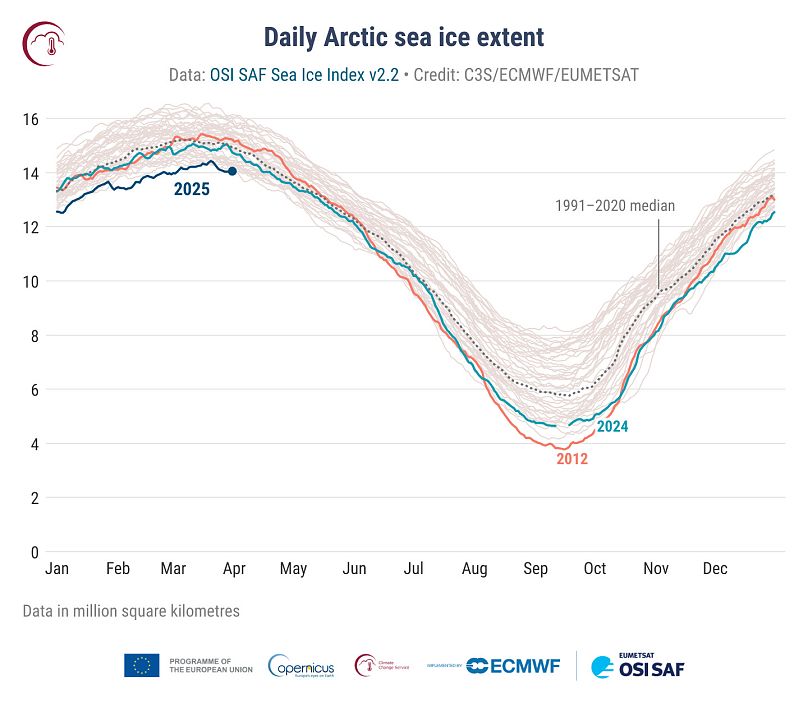
March 2025 was Europe’s hottest March on record, and the second-hottest March globally, new data shows.
The average temperature over European land last month was 6.03°C - 2.41°C above the 1991-2020 average for March, according to Europe’s Copernicus Climate Change Service (C3S).
The data highlights “once again” how temperatures are continuing to break records, says Samantha Burgess, strategic lead for climate at Copernicus’s European Centre for Medium-Range Weather Forecasts (ECMWF).
“It was also a month with contrasting rainfall extremes across Europe with many areas experiencing their driest March on record and others their wettest March on record for at least the past 47 years,” she says.

Globally, the surface air temperature was 14.06°C - 0.65°C above the 1991-2020 average and 1.60°C above the pre-industrial level for March.
This made March 2025 the 20th month in the last 21 months for which the temperature average was more than 1.5°C above the pre-industrial level - the threshold set by the Paris Agreement that the world is aiming not to surpass on a long-term basis.
How hot and wet was March 2025 across Europe?
Weather-wise, Europeans experienced a very different month depending on where they live.
The most unusually warm temperatures were felt over eastern Europe and southwest Russia.
Meanwhile, the Iberian Peninsula - Portugal, Spain and small parts of southern France - recorded colder-than-average temperatures. This region was also hit by a series of storms and saw widespread flooding.

Most of southern Europe saw wetter-than-average conditions, as did Norway, parts of Iceland and northwestern Russia.
By contrast, it was drier than average in the UK and Ireland, in a large west-east band across central Europe extending southward to the Black Sea, Greece and Türkiye.
Temperature records spark calls for climate polluters to pay
Climate campaigners are laying these abnormal climate patterns squarely at the door of oil and gas companies, as well as the governments enabling their expansion.
“As early Spring weather starts to feel more and more like Summer, Europe is potentially on track to face ever harsher heatwaves and wildfires later in the year,” says Rebecca Newsom, head of politics at Greenpeace UK.
“The past month’s contrasting rainfall extremes across the European region alone pose an immediate challenge to our food systems and to the economy as a whole. Europe’s citizens must not be left alone to pay for the chaos that dirty energy companies are fuelling.”
European oil and gas corporations like Shell, TotalEnergies, Equinor and ENI should be forced to foot the bill through substantial new taxes to help communities at home and abroad rebuild from climate disasters and invest in solutions, according to Greenpeace International.

Copernicus’s March 2025 report also points to a concerning trend in the Arctic - where sea ice reached its lowest monthly level for March in the 47-year satellite record, at 6 per cent below average. All months of 2025 have so far set a record low for the time of year.
And since Arctic sea ice reaches its annual maximum ‘extent’ in March - defined as the total area covered by at least 15 per cent ice - last month also marked the lowest annual maximum ever recorded for the region.







